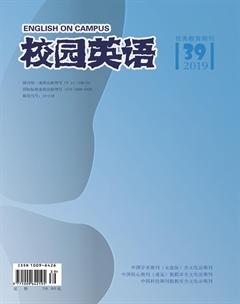Experts’ Views on Homework
Some dictionaries explain homework like this: Homework means preparatory school work done outside school especially at home. Nowadays, homework incurs a major complaint from all walks of life. Its a major source of tension between students and families. “Teachers hold the key to changing homework processes and can help to reduce such tensions” (Van Voorhis, 2004, p. 205). Teachers confront great challenge. Its time for teachers to think twice their roles in homework designing.
Homework is a comprehensive program related to school, family, and community partnerships (Epstein & Van Voorhis, 2001). Homework involves students, parents, and teachers to spent time and effort on it. “What factors affect students academic achievement? Research indicates that in addition to classroom instruction and students responses to class lessons, homework is one important factor that increases achievement” (2011, p. 220). One expert said (Simplicio, 2005): “ Homework is a time honored strategy for developing learning skills and reinforcing knowledge gained within the classroom”(p. 138). The expert Simplicio also says that homework plays a mainstay role in education when used appropriately. And it can be an effective method to strengthen the learning knowledge. There is a direct relationship between homework performance and the students academic performance. Recently, many publications have focused on the controversy about the homework time required, the quality and the usefulness of the assignment. Homework is considered as one necessary pointer of excellent schools and excellent students. Many experts have paid more attention on the research of homework, but seldom have they focused on the teachers roles of homework matters. Most works are about the time, methods, attitudes that the students have on the homework and the influence of homework on students performance at school. (Cooper, 1989;Paschal, Weinstein, & Walberg, 1984; and Cooper & Valentine, 2001). To most students, homework is a daily task. They may meet the homework for at the least 12 years. It takes the time, energy, emotions of the teachers, students and families. Coleman, Hoffer, and Kilgore claim that the more homework and the better discipline a school adopt the successful a school will be. In other words, if teachers assign students more assignment, the students will learn more and the school will be more successful. This claim must be opinionated. The function of homework is overestimated. It has nothing to do with the teachers goal and has no use to the language learning. And to some extent, it may hurt the students. They may not want to be honest person any longer.
When students manage to finish their homework, they are likely to make full use of all kinds of materials they have access to. The process is learning and developing process. They will search the Internet, ask their parents, call their peers, consult their teachers, go to the library, speak to their classmates, read books. The process is beneficial to the parent-child relationship, teacher-student relationship, teacher-family relationship, and the other relationship.
Concerning the purpose of homework, Van Voorhis offers the following perfect ideas:
“Practice, preparation, participation, personal development, parent-child relations, parent-teacher communications, peer interactions, policy, public, relations, punishment” (Van Voorhis, 2004, p. 207).
Cooper said: “Homework will not be used to teach complex skills. It will generally focus on simple skills and material or on the integration of skills already possessed by the student” (p. 90). (Coorper, 2001, p. 36) summarizes the following details.
The positive effects:
Immediate achievement and learning:
better retention of factual knowledge; use the smaller bullet increased understanding; better critical thinking, concept formation, information processing; and curriculum enrichment.
Long-term academic benefits:
learning during leisure time; improved attitude toward school; and better study habits and skills.
Nonacademic benefits:
greater self-direction; greater self-discipline; better time organization; more inquisitiveness; and more independent problem solving.
The negative effects:
Satiation:
lost of interest in academic material; physical and emotional fatigue; and denial of access to leisure time and community activities.
Parental interference:
pressure to complete assignments and perform well; and
conflicting instructional techniques.
Cheating:
copying from other students; and
help beyond tutoring.
Above are views from some foreign experts.
【作者簡介】浦春莉(1977.2-),女,汉族,云南宣威人,硕士,红河学院外国语学院, 讲师,研究方向:英语教育。

